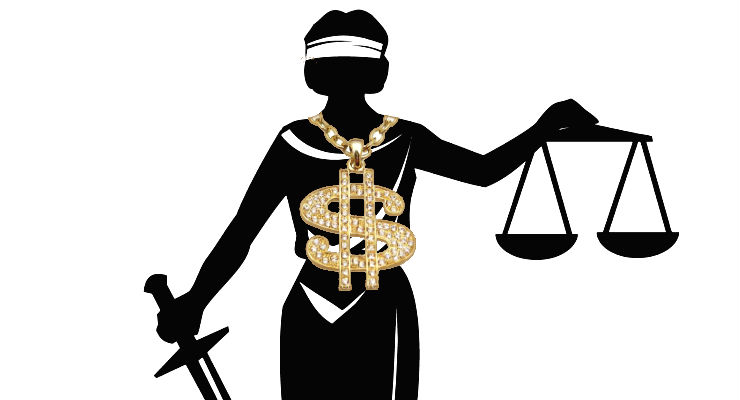
The Brennan Center for Justice at NYU School of Law has a regular Fair Courts E-lert with updates on ongoing issues in the court system. A recent post contained a section titled “Virginia High Court to Hear Arguments about Judicial Discipline for Political Activity” that had this update on a key case involving judicial political activity:
The Virginia Supreme Court will hear arguments on a judicial conduct complaint that resulted in the censure of two retired judges who spoke out against a ballot measure to move the county courts, writes Frank Green for the Richmond Times-Dispatch. Green writes that after advocating against moving the courts, “[a] complaint the judges were involved in political activity was made to [the Judicial Inquiry and Review Commission]” by the county Board of Supervisors.
The JIRC’s “counsel, Katherine B. Burnett, was concerned the judges’ actions damaged public trust and confidence in an independent, impartial judiciary,” continues Green. The JIRC found that the complaints were “well-founded and of sufficient gravity to constitute the basis for retirement, censure, or removal,” but the judges, supported by amicus briefs from the American Civil Liberties Union of Virginia, Rutherford Institute, and 23 former presidents of the Virginia Bar Association, argue that they were engaged in protected free speech.
The judges “are asking the justices to dismiss the complaint, arguing in court papers that terms such as ‘political’ and ‘political organization’ have been misinterpreted and misapplied by JIRC and should be limited to mean only partisan political activity involving candidates and political parties.
I thought the issue at hand was spelled out well in the opening questions asked by the Richmond Times-Dispatch article:
Should two retired judges who campaigned against relocating the Augusta County courthouse be disciplined for violating judicial rules against political activity? Or, as the American Civil Liberties Union and the Rutherford Institute contend, were they engaged in protected free speech, a right put at risk for all judges if the Virginia Supreme Court punishes them, as recommended by the Virginia Judicial Inquiry and Review Commission?
Some basic information on the Brennan Center:
The Brennan Center for Justice at NYU School of Law is a nonpartisan law and policy institute that seeks to improve our systems of democracy and justice. We work to hold our political institutions and laws accountable to the twin American ideals of democracy and equal justice for all. The Center’s work ranges from voting rights to campaign finance reform, from ending mass incarceration to preserving Constitutional protection in the fight against terrorism. Part think tank, part advocacy group, part cutting-edge communications hub, we start with rigorous research. We craft innovative policies. And we fight for them — in Congress and the states, the courts, and in the court of public opinion.
The following video on Judicial Elections and the First Amendment is from the Heritage Foundation and was published on Jan 20, 2015. It is over an hour long, so here is the YouTube summary before you dive in:
On January 20, the U.S. Supreme Court will be hearing oral arguments in Lanell Williams-Yulee v. The Florida Bar. At issue is whether a ban on solicitation of campaign donations by judicial candidates in state elections in Florida violates the First Amendment rights of the candidates. Does Florida have a compelling interest in imposing such a ban to preserve the appearance of impartiality of its judges? Is it necessary to ensure judicial independence and maintain public confidence in the judicial system? Does this ban on solicitation violate the First Amendment rights of candidates to engage in political speech and political activity?
Does the soliciting of campaign donations involve core political speech? In a post-argument briefing, two First Amendment experts who filed amicus briefs in the case, along with the former Chief Justice of the Indiana Supreme Court, will discuss these issues as well as the oral arguments conducted that morning before the Supreme Court. Moderating the panel will be a former FEC commissioner.
Leave a Reply